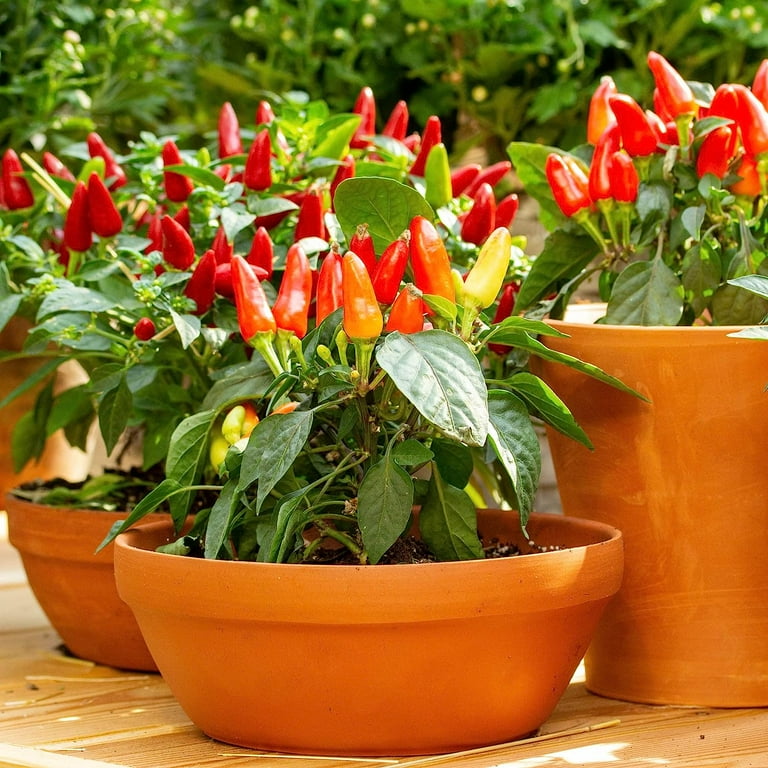Best Fertilizers for Peppers: A Comprehensive Overview to Increase Your Harvest
Best Fertilizers for Peppers: A Comprehensive Overview to Increase Your Harvest
Blog Article
Organic Vs. Synthetic Fertilizers: Which Is Best for Supporting Healthy Pepper Plants?
In the realm of nurturing healthy pepper plants, the selection between organic and artificial plant foods stands as a crucial choice with far-reaching ramifications. While both alternatives goal to provide necessary nutrients to sustain plant development, the subtleties of their influence on the dirt, plant health and wellness, and the setting spark a dispute that echoes throughout the horticulture community. Understanding the distinctive advantages and prospective risks of each plant food type is essential for pepper growers seeking to optimize their yields while preserving an eco-conscious and sustainable strategy.
Advantages of Organic Fertilizers
Organic plant foods use a lasting and environmentally-friendly strategy to nourishing pepper plants, giving important nutrients without making use of artificial chemicals. These all-natural plant foods are originated from natural sources such as garden compost, manure, bone meal, and algae, advertising soil health and wellness and biodiversity. Unlike synthetic fertilizers, organic choices release nutrients slowly, guaranteeing a steady and well balanced supply for pepper plants to prosper.
One considerable advantage of natural fertilizers is their ability to boost dirt framework and water retention. By enhancing dirt wellness, natural fertilizers promote beneficial microbial task, which helps in nutrient uptake by pepper plants. Additionally, organic fertilizers reduce the risk of chemical run-off, safeguarding water resources from contamination and securing the atmosphere.
In addition, organic fertilizers contribute to long-lasting soil fertility by advertising the growth of helpful dirt microorganisms. These microorganisms help damage down natural matter, releasing nutrients in a form that is conveniently obtainable to pepper plants. best fertilizers for peppers. By promoting a healthy dirt ecosystem, natural plant foods support sustainable pepper growing methods that profit both plants and the setting
Drawbacks of Synthetic Plant Foods
Synthetic fertilizers, in comparison to their natural counterparts, present different negative aspects when made use of to nurture pepper plants, influencing both plant wellness and environmental sustainability. One significant disadvantage of synthetic fertilizers is their tendency to leach nutrients from the dirt quickly. This quick leaching can result in nutrient inequalities in the soil, triggering plants to struggle with shortages or toxicities. Furthermore, synthetic plant foods can hurt helpful dirt organisms, such as earthworms and advantageous microorganisms, interrupting the soil environment's balance.
Furthermore, the overuse of synthetic plant foods can contribute to water air pollution. Excess fertilizers not soaked up by plants can wash away into water bodies, causing eutrophication, where algae blossoms diminish oxygen levels in the water, harming marine life. Additionally, synthetic fertilizers are normally acquired from non-renewable resources, such as nonrenewable fuel sources, adding to carbon discharges and environmental destruction throughout their production.
Nutrient Absorption Contrast
When contrasting natural and artificial plant foods in terms of nutrient absorption, natural fertilizers have the advantage of supplying a more well balanced and slow-release resource of nutrients. Organic fertilizers have a range of macro and trace elements that are not only valuable for the plants however also advertise healthy dirt microbial task, which helps in nutrient uptake.
Moreover, organic plant foods enhance soil framework and water retention capacity, allowing pepper link plants to gain access to nutrients a lot more efficiently. This enhanced dirt quality helps with origin development, making it possible for much better nutrient absorption. Artificial plant foods, although at first enhancing plant development as a result of their high nutrient focus, may impede lasting nutrient absorption by derogatory soil wellness with time.
Ecological Effect Considerations

On the other hand, synthetic fertilizers, although commonly more focused and quickly available to plants, can have damaging effects on the environment otherwise applied properly (best fertilizers for peppers). Their production needs high power inputs, bring about greenhouse gas emissions and contributing to environment modification. The webpage overflow of excess artificial plant foods can infect water resources, leading to eutrophication and damaging aquatic environments.
Finest Plant Food Practices for Peppers
To attain this, it is important to adhere to ideal fertilizer practices tailored to the specific requirements of pepper plants. One vital practice is to do a soil examination prior to applying any kind of plant foods.
Another vital method is to fertilize pepper plants at the correct time. Usually, peppers take advantage of receiving plant food at planting and then once more when they begin to blossom. Over-fertilizing can cause vitamins and mineral discrepancies and hurt the plants, so it is essential to adhere to advised application rates.
In addition, choosing a balanced fertilizer with an NPK ratio that fits pepper plants' needs is essential. Eventually, integrating artificial and Resources natural plant foods sensibly can aid nurture healthy pepper plants while minimizing environmental impact.
Final Thought

Organic fertilizers use an environmentally-friendly and lasting method to beneficial pepper plants, providing necessary nutrients without the use of synthetic chemicals. Unlike synthetic plant foods, organic choices release nutrients gradually, ensuring a well balanced and stable supply for pepper plants to flourish.
Artificial fertilizers, in comparison to their natural counterparts, pose various drawbacks when made use of to nurture pepper plants, impacting both plant wellness and environmental sustainability. When contrasting synthetic and organic fertilizers in terms of nutrient absorption, natural plant foods have the benefit of giving an extra balanced and slow-release source of nutrients.Moreover, organic fertilizers enhance soil structure and water retention ability, permitting pepper plants to access nutrients more efficiently.
Report this page